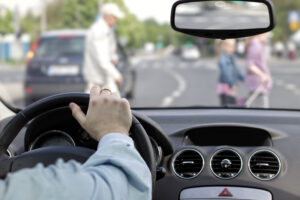When it comes to pedestrian accidents in Pasadena, Texas, the aftermath can be overwhelming. Victims often find themselves dealing with injuries, medical bills, and the complexities of legal processes. In such situations, eyewitness testimony can play a pivotal role in establishing liability and ensuring that victims receive the compensation they deserve. In this article, we will explore the importance of eyewitness testimony in Pasadena pedestrian accident claims and the requirements associated with it.
The Crucial Role of Eyewitness Testimony
Eyewitness testimony is the account of an individual who has witnessed an event, in this case, a pedestrian accident, and is willing to share their observations and recollections with authorities, legal professionals, and the court. In pedestrian accident claims, eyewitnesses can provide invaluable information to establish:
- Fault and Liability: Eyewitnesses can help determine who was at fault in the accident. They can provide insight into the actions of the pedestrian, the driver, and other relevant factors such as road conditions and traffic signals.
- Chronology of Events: Eyewitnesses can help reconstruct the sequence of events leading up to the accident. This chronology can be crucial in establishing causation and liability.
- Injuries and Damages: Eyewitnesses may also be able to provide information about the injuries sustained by the pedestrian and the immediate aftermath of the accident. This information can be used to assess the extent of damages suffered.
- Corroborating Evidence: Eyewitness testimony can corroborate other evidence, such as surveillance footage or physical evidence at the accident scene. This strengthens the credibility of the victim’s claims.
- Witness Credibility: Eyewitnesses can be persuasive in court, as they are seen as unbiased third parties with no vested interest in the case’s outcome. Their testimony can carry significant weight with judges and juries.
However, while eyewitness testimony can be a powerful tool in pedestrian accident claims, it is essential to understand the requirements and challenges associated with it.
Requirements for Eyewitness Testimony in Pasadena, Texas Pedestrian Accident Claims
- Accuracy and Reliability: The accuracy and reliability of eyewitness testimony are of paramount importance. Eyewitnesses must be able to provide clear and consistent accounts of what they saw. Inaccurate or inconsistent testimony can weaken the case.
- Timeliness: Promptness is key when it comes to eyewitness testimony. Witnesses should report what they saw as soon as possible after the accident to ensure that their recollections are fresh and unaltered.
- Credibility: Eyewitnesses should be credible and impartial individuals. This means they should not have a personal interest in the outcome of the case and should not be biased in favor of one party over another.
- Detail-Oriented: Witnesses should be detail-oriented and able to recall specific facts, such as vehicle descriptions, license plate numbers, and the order of events leading up to the accident.
- Willingness to Testify: Eyewitnesses must be willing to testify in court if necessary. Their willingness to appear as witnesses can be a determining factor in the strength of the case.
- Cooperation with Authorities: Witnesses should cooperate fully with law enforcement, attorneys, and investigators. This includes providing statements, attending depositions, and testifying in court.
- Unbiased Perspective: Witnesses should provide testimony based solely on what they saw and not on assumptions, hearsay, or information from others.
- Consistency: Consistency in the witness’s statements is crucial. Any significant discrepancies in their accounts can be used to challenge their credibility.
Challenges Associated with Eyewitness Testimony
While eyewitness testimony can be highly valuable, it is not without its challenges. The following are some common issues associated with eyewitness testimony:
- Memory Inaccuracy: Human memory is fallible, and witnesses may inadvertently recall details inaccurately or forget critical information.
- Stress and Trauma: Witnesses to accidents, especially traumatic ones, may experience stress and trauma, which can affect their ability to remember and recount events accurately.
- External Influences: Witnesses may be influenced by external factors, such as media coverage or discussions with other witnesses, which can alter their recollection of events.
- Cross-Examination: Witnesses may face rigorous cross-examination by opposing counsel, which can potentially undermine their credibility.
- Bias and Perception: Witnesses may perceive events differently based on their own biases, beliefs, and perspectives.
- Suggestibility: Witnesses can be suggestible, meaning they may inadvertently incorporate information from leading questions or external sources into their testimony.
Given these challenges, it is crucial to work with experienced legal professionals who can effectively assess, prepare, and present eyewitness testimony in pedestrian accident claims.
We are committed to helping you navigate the legal complexities of your case and work tirelessly to ensure that your rights are protected and that you receive the compensation you deserve.
Don’t hesitate to reach out to us today for a free consultation. Let us put our expertise to work for you and help you on the path to justice and recovery. Contact Willumsen Law Firm, P.C., and let us be your trusted advocates in your pedestrian accident claim.
Eyewitness testimony plays a vital role in Pasadena, Texas pedestrian accident claims. It can help establish fault, chronology of events, and the extent of damages suffered. However, it comes with requirements and challenges that must be carefully managed. If you’re in need of experienced legal assistance for your pedestrian accident claim, contact Willumsen Law Firm, P.C., today and take the first step towards seeking justice and compensation.
